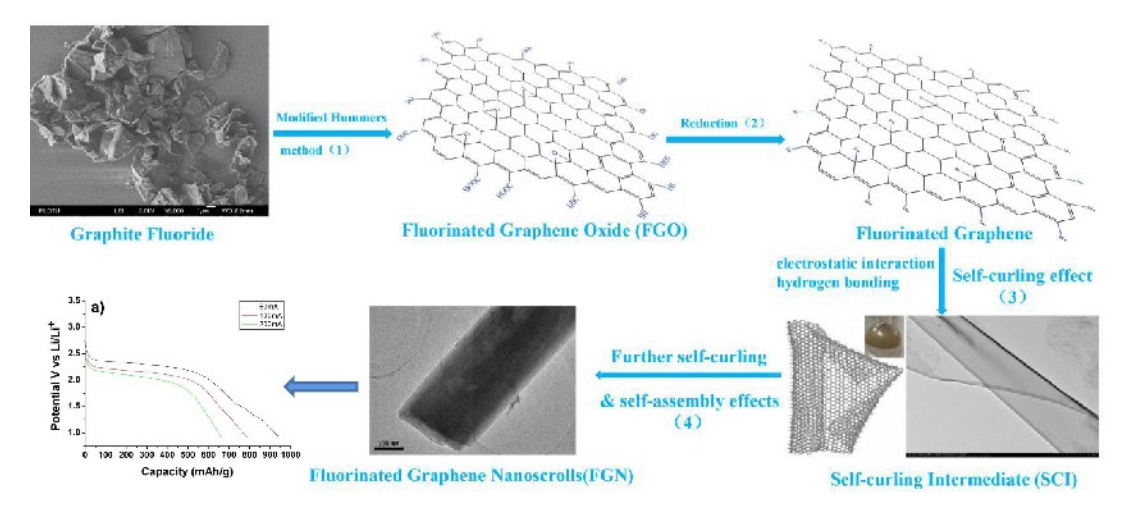In this work, fluorinated graphene nanoscrolls (FGN) were synthesized via facile chemical methods under simple and mild conditions. Interestingly, the formation of the featured FGN was significantly solvent sensitive. Experimental results indicated that in the presence of aprotic solvent, for example, N,N dimethylformamide (DMF), the reaction system inclined to form the interesting FGN nanostructures. The structure and morphology of the prepared FGN were detailed characterized by atomic force microscopy (AFM), transmission electron microscopy (TEM), scanning electron microscopy (SEM) and X-ray diffraction (XRD) etc. The obtained FGN was used as a cathode material for primary lithium ion batteries with superior discharge specific capacity (eg. 979.3 mAhg-1), stable discharge platform and high energy density (eg. 2287.9 Wh kg-1), which fosters it a high density, low cost and durable candidate for cathode material for lithium ion batteries..

